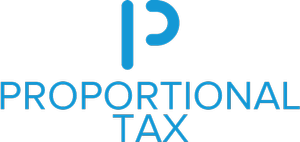While most states charge a personal income tax, some do not. Alaska, Florida, Nevada, South Dakota, Washington, and Wyoming do not levy any income taxes at all. Tennessee and New Hampshire continue to tax interest and dividends until January 2021. In all, there are more than four hundred and fifty state income taxes. In most cases, a person who earns more than $40,400 annually will be liable for these taxes.
In addition to the AMT, there are other tax laws and regulations to consider. These include a change in how state tax law applies to businesses. Currently, the AMT exemption amount is USD 109,400 for married taxpayers filing joint returns, and USD 70,300 for all other taxpayers. Depending on your income, you may be required to pay a higher percentage of your taxable income than you make. If you have more than enough to pay a higher tax rate, you will receive a refund. If you owe less, however, you will owe more.
The debate over taxation is both ideological and political. If you want to shape society through spending on education and infrastructure, you may prefer to pay a higher rate of personal income tax. But, there are also other factors to consider. Those who make less than $50,000 a year will be unlikely to favor the high rate of income taxes. Among the best states for economic outlook, four are not charging an individual income tax. The American Legislative Exchange Council is a conservative think tank focused on free markets.
The IRS uses the federal adjusted gross income as the starting point for calculating the amount of income a person is required to pay. For example, if you earn more than $75,000, you will most likely get a refund. Otherwise, you may owe a portion of the tax due. That’s where personal income tax calculators come in handy. It is not only a helpful tool to help you understand your taxable income, but it can also help you to avoid paying a higher rate than you should.
The IRS calculates the difference between the taxes you paid and the taxes you owe. If you paid more than you owed, you will receive a refund. Otherwise, you may owe the difference. The IRS also makes deductions for mortgage interest, charitable contributions, and more. If you owe more than what you owed, you will owe a smaller refund. In these cases, the IRS will reduce your taxable income by reducing the deductions you claim.
In most cases, the IRS will calculate the difference between the amount of tax you paid and the amount you owe. If you paid more than you owed, you will most likely get a refund. If you paid less than you owe, you will owe the difference. This is where your self-assessment comes in handy. If you are self-employed, then you can choose to pay a lower rate of taxes. The IRS will assess the difference based on your AGI and the income level of the individual.

